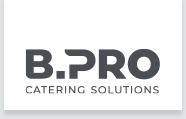In-store catering on the up

With fresh ideas and reasonable investments 2022 has been experiencing a noticeable upswing in retail catering.
The industry has recovered well from the 2020 coronavirus pandemic, which caused in-store catering turnover to fall from €10 billion in 2019 to around €7.55 billion. With a projected turnover of €9 billion in 2022, the future looks bright.
These turnover figures and their development since the coronavirus pandemic have been warmly welcomed in the in-store catering industry, which was heavily impacted by the pandemic and the related restrictions and has since managed to recover relatively swiftly.
New ideas invigorate business
Many managers in the in-store catering industry have used the last two years wisely to develop new ideas and introduce new concepts into sales areas. In 84% of stores, retailers have rethought their food concepts and adapted them to the situation and consumer behaviour.

To-go convenience products have seen a particular uptick in their inclusion in existing ranges. Customers have reacted positively to such range updates and have moved away from higher-priced restaurant and café offerings towards more to-go convenience.
This is also reflected in the average receipt amount, which is currently €4.92 for in-store catering purchases. It is therefore hardly surprising that the industry's current aims focus on customer acquisition, increasing purchase frequency and optimal customer loyalty.
Sustainability is on its way
Sustainability is also becoming an increasingly important feature of in-store catering and also covers the issues of single-use and reusable packaging as well as food waste and animal welfare.
The new German Packaging Act will make reusable packaging mandatory in the food service industry from 2023. In addition to disposable containers, reusable ones will have to be available for takeaway food and drinks-to-go. A total of 99.8% of stores operated by surveyed retailers already use sustainable packaging.
However, at 5.2% in in-store catering and 3.9% in food stores, the use of reusable packaging still has a long way to go. Retailers are planning to introduce a reusable packaging system in more than 70% of stores.
Surging energy prices
Like many other industries, in-store catering has suffered the brunt of skyrocketing energy costs. Eye-watering energy and raw material prices present major challenges for the future. Energy efficiency measures that optimise buildings, heating systems and machines are current investment priorities at the top of the list.
Expectations of the quality of the food on offer and customers' willingness to pay are further challenges. After all, there is considerable discrepancy between these two poles – customers have high demands when it comes to product quality but continue to be very unwilling to pay higher prices for it.

Costly challenges
Some 70% of retailers are investing in catering technology and shopfitting. This includes cooking, hob and presentation technology as well as units for washing and cooling. Digitisation in the areas of production, ordering and self-checkout systems are also seen as a necessary field of investment.
This readiness to invest is presumably also aimed at counteracting current staff shortages. After all, the issue of human resources continues to be seen as one of the main challenges facing the industry.
The future role
Some signs and indicators also point to further growth in out-of-house consumption. These include the rising number of smaller households, increasing mobility and urbanisation, coupled with the stress and lack of time that have an ever-growing effect on our lives.
In-store catering provides an immediate and inspiringly diverse response to the resulting needs and demands. The traditional functions of retail are gaining more importance in our lives. Shopping often becomes a leisure activity with in-store catering assuming the role of a social meeting place and inherent part of the overall experience.


In-store catering initiative (EHI Retail Institut; German)



